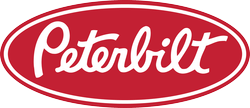Five Ways to Weatherproof the Workplace in an Economic Downturn
The economy can certainly be a reason why employees feel jittery on the job. Gasoline prices are leaving Americans light-headed, food prices are causing cases of sticker shock, home prices are falling, and a credit crisis is rattling Wall Street.
“I’m not sure you can keep employees ‘happy’ when things are crumbling around them, but at the least a company can provide a feeling of stability and strength,” said Barry L. Brown, President of a Florida-based consulting agency. “The more employee-centered communications, support groups, etc., an employer can provide, the better. This is worth a lot during a crisis, and a lot more once the crisis has passed. Employees will remember what the employer did, good or bad.”
In bad times – and good – employees want to be recognized as individuals, shown appreciation, and be given opportunities to grow. Here are five little or low-cost ideas to keep the staff focused when the economy is bubbling over with bad news:
Honesty Is the Best Policy
Remind employees of the company’s history and name some of the storms the company has weathered in the past. Communicate the business outlook. It’s critical that employers are honest about the situation. If the business is strong, focus on upcoming projects, new contracts awarded, etc. If business is weak, focus on what is being done to weather the storm.
“If business is obviously getting worse, focus on the integrity of the management,” said Brown. “Remind employees of the benefits that can help them stay afloat. Post listings of available company and community resources, contacts, and phone numbers. This will demonstrate that the company cares, and sometimes that can be very reassuring to employees.”
Food for Thought
Many times when people are stressed the first thing they do is eat.
Stressed-out workers often eat more calories, skip exercise breaks, and take part in other bad behaviors. But tense economic times are when healthy habits are perhaps more critical than ever.
Eating right, and exercising may seem like a luxury when the pressure is turned up at work, but the simple fact is that healthy activities reduce stress and give people a sense of control. And too much stress can take a heavy physical toll, resulting in worker absenteeism and less productivity.
Companies should strive to create a workplace that reduces tension, promotes good eating habits, and encourages employees to take exercise breaks.
Driving Is Not a Gas
When driving to work is a daily routine, there’s nothing more painful than high prices at the pump.
Nationally, gasoline prices are going up. In some parts of the country, including New York City and much of the West coast, gasoline seems to stay above $4 a gallon.
When it costs so much to get to work, employers can help with incentive programs to carpool or use mass transit systems. Company vanpools can also share the load and help cut into the cost of rising gasoline prices.
Stand Up and Be Recognized
Keeping employees motivated in tough times with special programs can work wonders. Training programs can help boost employee morale by demonstrating the company’s willingness to invest in the skills of the workforce. Employee recognition programs give workers a chance to be noticed.
Tough times typically mean belt-tightening at the office, resulting in downsizing, and hiring freezes. Big raises usually aren’t in the plan, but employers can assign increased responsibilities and new titles, which signal trust in the workforce to handle the tasks at hand.
Share and Share Alike
Small things can help lift the spirits of cash-strapped workers. They may seem trivial, but over time, they all add up.
Employers can share Web links with money-saving tips for stretching dollars at the grocery store. Or they can provide links to information on how homeowners can make their home more attractive to potential buyers. In short, make sure employees are continually kept current with real-life help.
One measure of any great company is how it supports and treats its employees, in good times and in bad.
If you would like to learn more about how NBRI can help your employees be more productive and creative, contact us now at 800-756-6168.
Ken West
Chief Operating Officer
National Business Research Institute




























 By submitting this form you agree to our
By submitting this form you agree to our